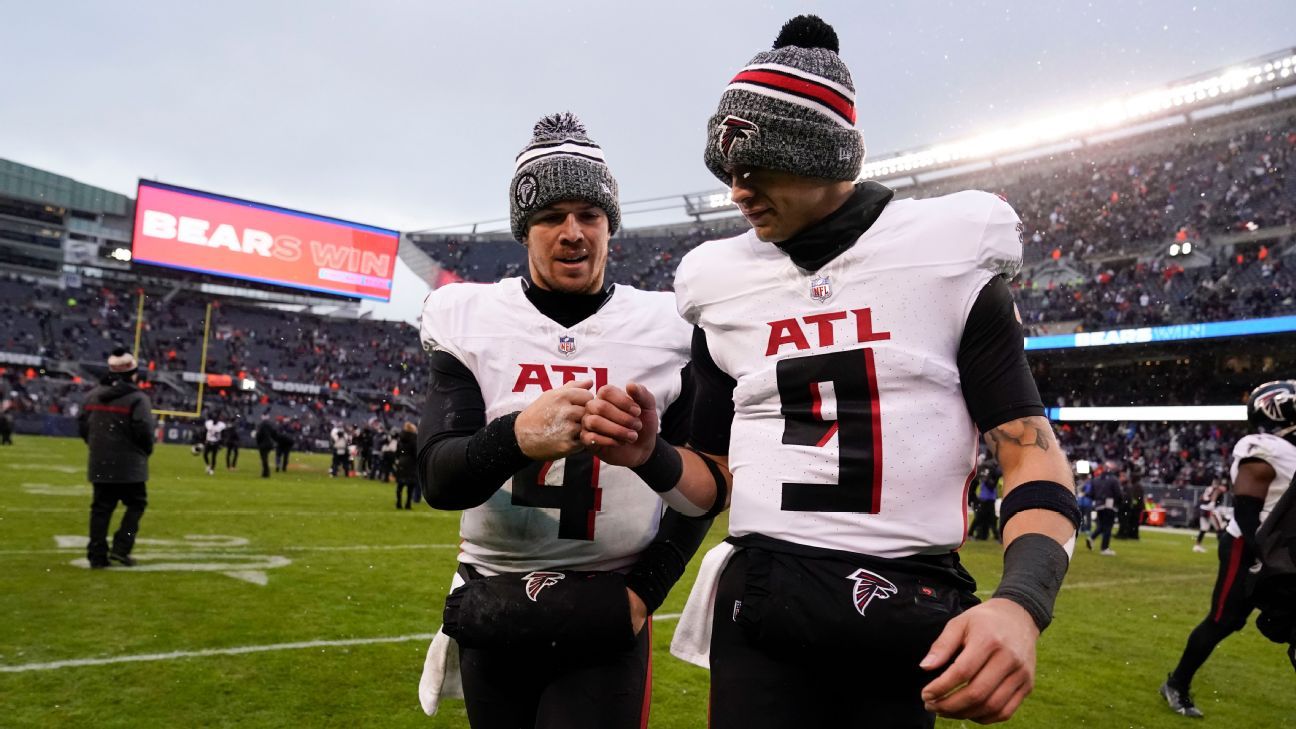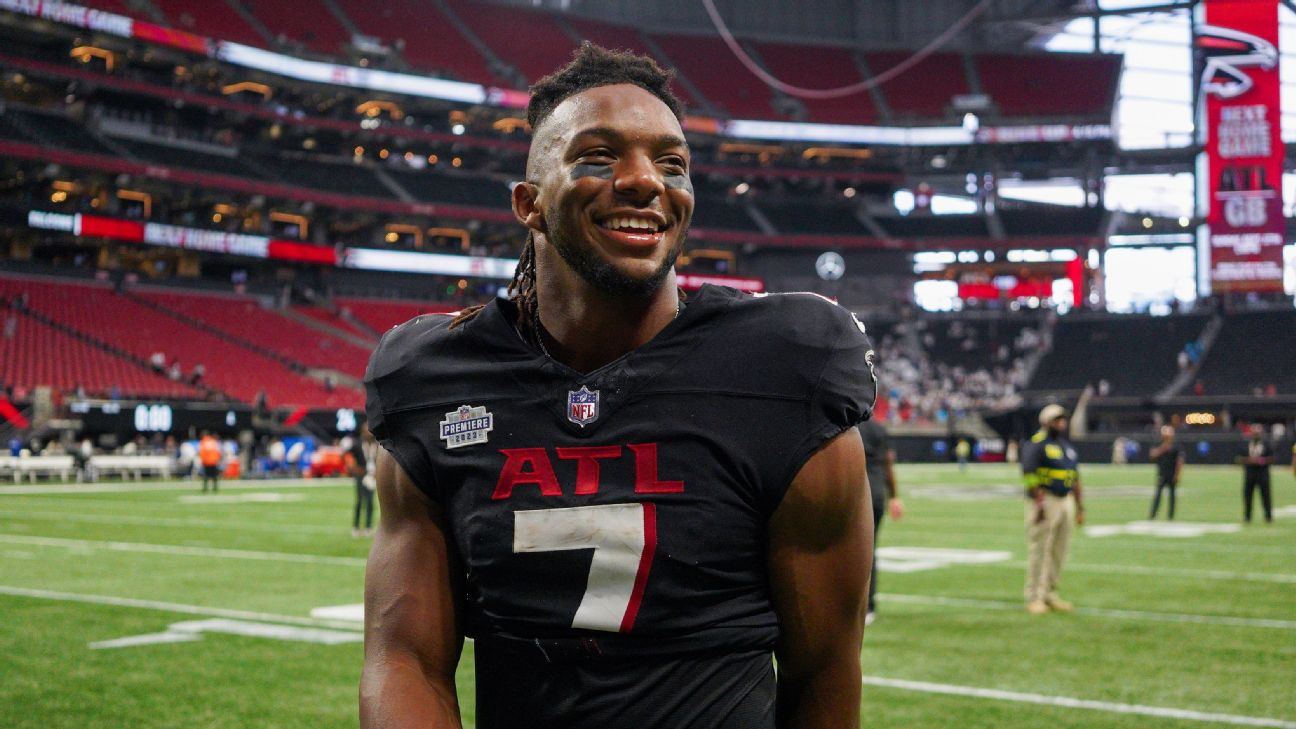The Atlanta Falcons’ quarterback roster is undergoing a significant transformation this offseason, with the team making a strategic move by adding Kirk Cousins to lead the charge. This decision has notably shifted Taylor Heinicke to a backup position, igniting speculation about the future dynamics within the team.
Head Coach Raheem Morris has hinted at further changes, signaling an open competition for the backup quarterback spot as the 2024 campaign approaches.
Kirk Cousins’ acquisition marks a pivotal shift in Atlanta’s approach, pushing the team to look beyond its current roster for quarterback depth. Heinicke, once viewed as a reliable veteran insurance for Desmond Ridder, now finds himself in a precarious position, with his role as QB2 under threat.

Financial Constraints Drive Atlanta Falcons’ Draft-Focused Quarterback Strategy
The Atlanta Falcons face a tight financial situation, with only $6.3 million in cap space available, which is earmarked primarily for signing their incoming rookie class.
This budgetary constraint makes it challenging to bring in a seasoned quarterback through free agency, putting names like Ryan Tannehill or Carson Wentz out of immediate reach. The upcoming draft presents a more feasible avenue for the Atlanta Falcons to bolster its quarterback lineup without breaking the bank.
One of the toughest and greatest games in Atlanta Falcons history pic.twitter.com/D3LtxMbWAk
— Mario (@falconfiend2) March 20, 2024
In light of these financial constraints, the Falcons have strategically lined up a visit with Michael Penix Jr., the 2023 Heisman runner-up. Although Penix’s acquisition might seem ambitious given Atlanta Falcon’s draft position and cap situation, the team’s interest underscores a commitment to revitalizing its quarterback roster through calculated risks and forward-thinking strategies.
Atlanta Falcons’ Trade for Kirk Cousins Reshapes Strategy
The trade that brought Kirk Cousins to the Atlanta Falcons not only reshaped the Atlanta Falcons’ quarterback depth chart but also had a domino effect on the team’s overall strategy. The departure of Desmond Ridder to the Cardinals, a move that brought Rondale Moore to Atlanta, highlights the Falcons’ broader efforts to enhance their offensive capabilities.
Coach Morris praised Ridder’s professionalism throughout the process, emphasizing the trade’s strategic nature rather than any dissatisfaction from the player.

Ridder’s new beginning with the Cardinals, where he’ll back up Kyler Murray, contrasts with the Falcons’ ongoing search for quarterback stability. The Cousins deal, while addressing an immediate need, also opens up a wider conversation about the team’s direction and how best to support its new lead quarterback.
Atlanta Falcons’ Strategic Moves Set Stage for Success
As the Atlanta Falcons prepare for the summer with a revamped quarterback line-up, the spotlight is not just on Cousins but on the evolving strategy behind the scenes. The competition for the backup role, the financial juggling required to bring in new talent, and the trade decisions that ripple through the team’s dynamics are all part of a larger narrative.
Atlanta Falcon’s approach to addressing its quarterback conundrum speaks volumes about the team’s ambitions and its commitment to building a competitive roster for the 2024 season and beyond.
The Atlanta Falcons’ offseason maneuvers reflect a blend of strategic foresight, financial acumen, and a willingness to adapt. As the team looks to solidify its quarterback depth chart, the anticipation builds for what could be a transformative season. With a clear vision and strategic acquisitions, Atlanta is positioning itself as a team to watch in the coming year.

Sources: Yardbarker









